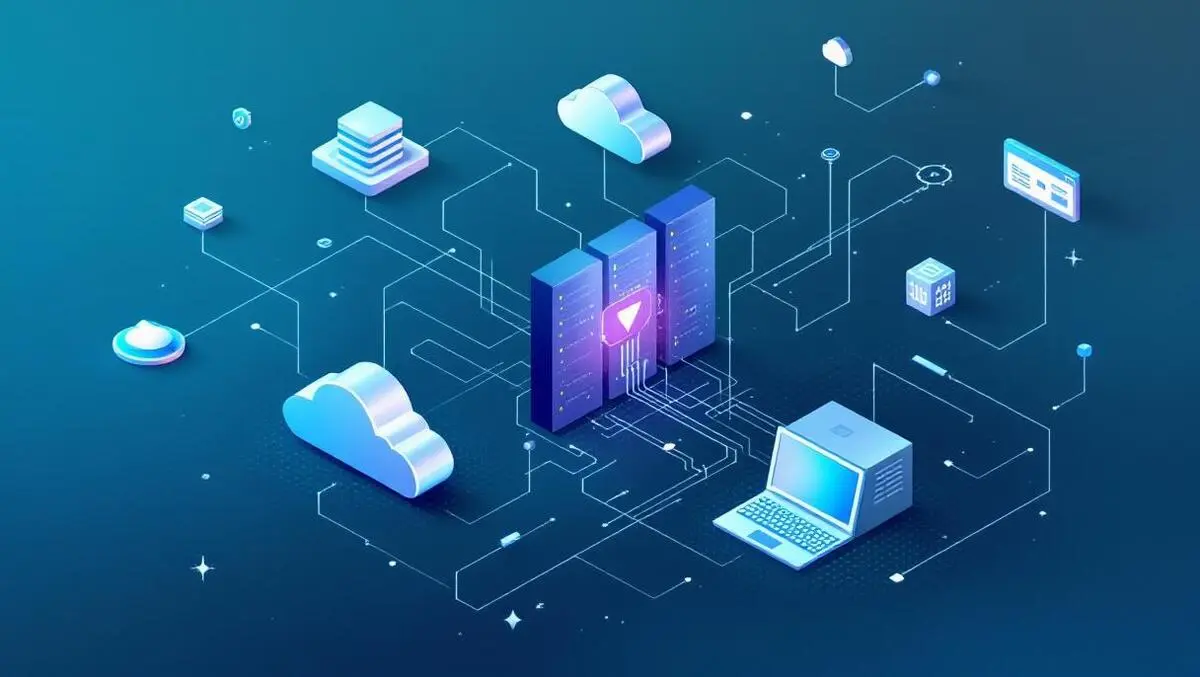
Exclusive: CIO says AI breaks the cycle of forced ERP upgrades
CIOs are no longer bound to the treadmill of forced ERP upgrades.
That was the message from Joe Locandro, Executive Vice President and Global CIO at Rimini Street, who argued that artificial intelligence and third-party support are reshaping the economics and strategy of enterprise software.
"We're going to keep our Snowflake data warehouse intact. I'm not putting any more in," Locandro said. "Any other data I need, I just go to the source system. The financial system is always up to date. It's going to be more up to date than whatever I put in a data warehouse."
He explained that the rise of agentic AI has changed how companies can work with their systems. "Why do you need to pull all the data into one place if you can get an agent to go every day, every hour, and pick what you need?" he asked. "Technical debt used to mean, if you're three versions out of date, it's not supportable and it hinders innovation. That's no longer true."
At Rimini Street, Locandro said, old systems are not liabilities but assets to be preserved and supported. "All these ERPs we support, we patch them, we keep them current, ECC6 for example, all the way to 2040," he explained.
Supporting the ageing workforce
A key challenge is the loss of specialist knowledge as experienced IT professionals retire. "Those old manufacturing systems are really maintained by my age group in the 60s and beyond," Locandro said. "You've got three or four people in each company who only know it, and they're really critical. It's not about the systems so much as the ageing workforce to support them."
To address this, Rimini Street provides custom support alongside its work with standard ERPs. "Now people like me and other CIOs, we have alternatives," Locandro said. "Why don't you self-fund your innovation through third-party support?"
Savings are significant, he argued. "For example, in ECC6 the support from the database is usually around about 40 per cent cheaper, and then you move up the stack to managed services and applications. If you had a $2 million bill for maintenance on Oracle, we can get it done for far less," he said.
Innovation without compromise
Locandro rejected the idea that cost savings come at the expense of innovation. "The beauty is the way AI innovation works nowadays, the agents go through what we call a data fabric layer. It builds up like a data dictionary," he explained.
This means AI can connect to disparate systems without requiring costly migrations. "Just as it trolls the internet, it trolls internally," he said. "In the future, CIOs will just get plug-and-play apps for what they need. Payment gateways, CRMs, stock inventory - everything's getting more granular."
He likened the shift to the app revolution in consumer technology. "In the old days, there was no such thing as an Apple app. Now look how many apps there are. It's the same thing with enterprise systems," he said.
Security and cost pressures
Rimini Street has also launched Remedy Protect, a wrapper that secures legacy systems without changing their core. "We've got a smart group of engineers. They're like a special ops company," Locandro said. "When you go to the board and they ask about technical debt, you can say not only is it supported, but security exposure is going down too. It's a double whammy."
With corporate IT budgets under intense pressure, cost control is driving decision-making. "My budget couldn't cope with 20 per cent increases on Microsoft licences and 300 per cent increases on VMware," he said. "So I went to Rimini Street as a customer. That's where I got my cost relief and kept my budget flat."
The company's global footprint, with centres in Brazil, India, the US and soon Malaysia, supports 24/7 monitoring. "We have a response time of less than 10 minutes for priority issues," Locandro said. "If something goes bang in the night, your internal teams can't answer it in 10 minutes because they're asleep. We're always watching."
The vendor squeeze
Locandro criticised major ERP vendors for restrictive upgrade policies. "The upgrade is never a customer choice. It's a vendor imperative," he said. "They say 2027 you're unsupported, so you have to upgrade."
He pointed to SAP's Rise programme, which requires companies to strip out customisations and surrender perpetual licences. "I've spent 50 million making this system regulatory compliant. Now you're telling me I can't take it across? I've got to strip it and redevelop it?" he said. "Boards see it as a one-way bet. There's no optionality."
Even some system integrators, he noted, are partnering with Rimini Street despite conflicting strategies. "They told us, if we introduce you to keep the landscape afloat until the customer's ready, maybe they'll give us the big project later," he said.
Choice, not compulsion
For Locandro, the bigger picture is about shifting power back to customers. "AI is now breaking the nexus with forced upgrades. The traditional path versus the smart path - that's the paradigm shift," he said.
Companies can now decide whether to sweat assets, build new functionality on top, or adopt new modules only when needed. "It's like a banking system. It works fine. Leave it be. If you want new functionality, do what the banks do - put a new mobile app on top. It's cheaper, quicker, and avoids endless audits and regression tests," he explained.
He said boards are now weighing IT investments against core business priorities more sharply than ever. "If I had $100 million, would I put it in a plant that needs to produce more, or would I give it to you for an IT system and wait five years?" he asked.
Locandro concluded with a warning for software vendors: "I never had a choice before. Now I do. I'm not forced to a vendor timetable or road map anymore. I get choice, and that's the game-changer."


